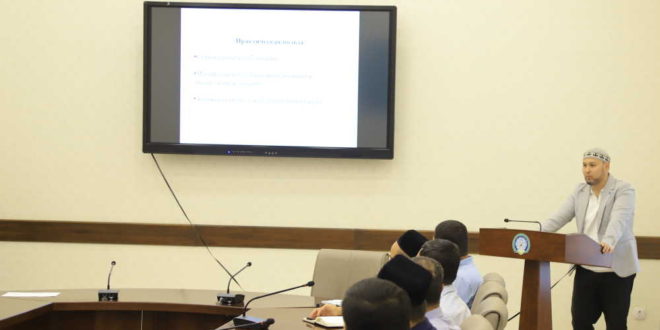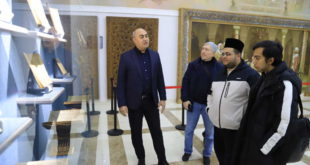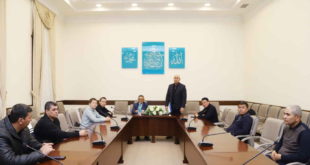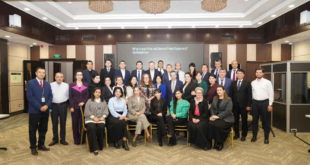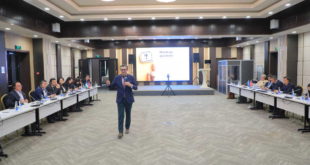Center’s intern, laureate of the International Imam Bukhari Scholarship Program, and doctoral candidate at Marmara University (Turkey), Daniyar Issabekov, delivered a scholarly presentation entitled “A Comparative Analysis of the Work Hidāyah in the Legacy of Islamic Law and Its Commentaries.”
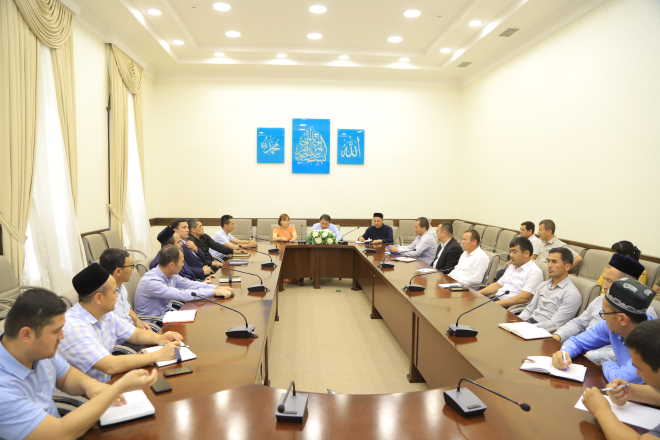
The event, attended by the staff of the Imam Bukhari International Scientific Research Center, featured a comparative analysis of the methods employed by scholars from Central Asia and the Arab world in their commentaries on this renowned work.
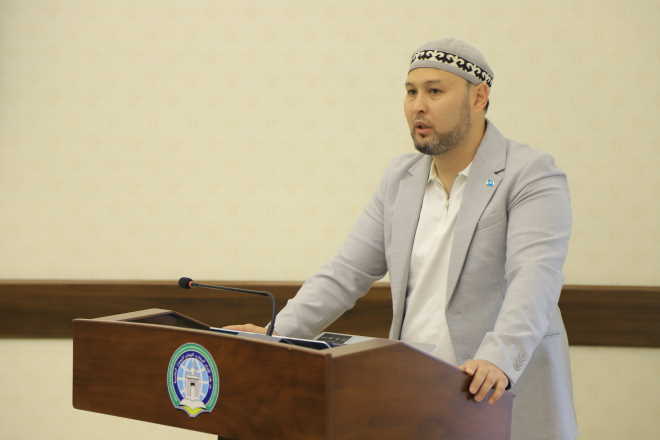
Organized as the conclusion of a two-month research internship, the presentation focused on the historical significance of Hidāyah, the stylistic differences found in the commentaries provided by scholars from various regions, and the scientific and cultural factors underlying these differences.
During his research, Daniyar Issabekov paid particular attention to the commentaries of renowned scholars such as Husam al-Din al-Sighnaqi, Jalal al-Din al-Ghurlani, Akmal al-Din al-Babarti, Badr al-Din al-ʿAyni, Kamal al-Din Ibn al-Humam, and Shams al-Din al-Sarujī. He highlighted differences in style, structure, terminology, legal reasoning, approaches to the use of hadiths, and the scope of inter-madhhab analysis and commentary.
“While Central Asian scholars tended to adopt a logical and systematic approach to jurisprudential matters, scholars in the Arab East based their commentaries more heavily on hadiths and employed a polemical and analytical style,” noted the researcher.
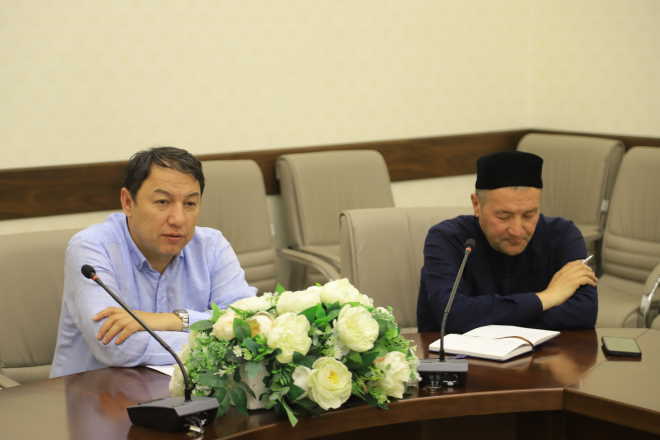
Following the presentation, a lively discussion and Q&A session was held. Participants particularly emphasized the importance of engaging young researchers in the study of classical heritage and the need to further develop modern academic research in the field of Islamic jurisprudence.
In addition to revealing stylistic differences in the commentaries on Burhan al-Din al-Marghinani’s Hidāyah, the research presentation also highlighted the rich scholarly achievements of both the Central Asian and Arab intellectual traditions. At the conclusion of the event, Daniyar Issabekov expressed his sincere gratitude to the Center’s leadership for providing such a supportive and enabling academic environment.
“If my research has contributed, even in a small way, to the study and popularization of Islamic legal heritage, I would consider myself truly fortunate,” he said. “I am grateful to the Imam Bukhari International Scientific Research Center for fostering such an inspiring academic atmosphere. Such support greatly motivates young researchers to pursue scholarly inquiry.”
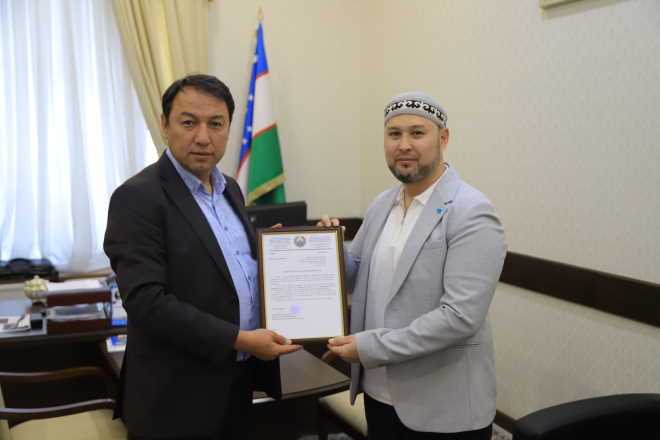
At the event, the researcher was awarded a certificate of recognition by the Center. The Center’s staff wished the young scholar continued success and new achievements in his future academic endeavors.
 Imom Buxoriy xalqaro ilmiy-tadqiqot markazi bukhari.uz
Imom Buxoriy xalqaro ilmiy-tadqiqot markazi bukhari.uz
